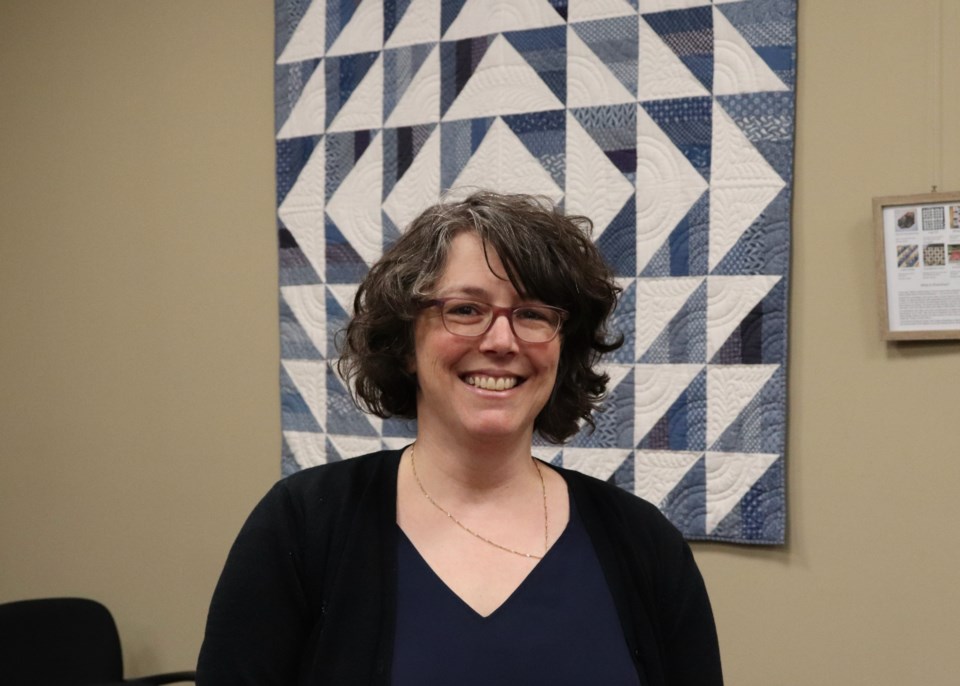CENTRE WELLINGTON — Centre Wellington council has voted unanimously in favour of using a land acknowledgement at the beginning of its meetings.
The decision came at Monday night's council meeting, which began with Mayor Shawn Watters delivering a land acknowledgement.
The land acknowledgement will be used at council meetings, public meetings, meetings with Indigenous nations, “formal unveilings and ceremonies, and any public information centres, open houses or workshops where there is a formal presentation or welcome.”
Dan Wilson, chief administrative officer, noted that the land acknowledgement is part of the process of truth and reconciliation.
“This is really just the first step in a larger conversation around the action needed around truth and reconciliation,” Wilson said.
Annie Veilleux, senior cultural heritage specialist and manager of the cultural heritage division at Archaeological Services Inc., explained that the land acknowledgement must be done in a proper and respectful way.
“We are suggesting in the report that, as mentioned by ASI, that you should focus in on significant events in terms of when you use the land acknowledgement and to provide the land acknowledgement in a very meaningful way,” Wilson said.
Therefore, specific types of events have been identified as appropriate for the land acknowledgement.
“So in that, what we’re proposing is that we use the land acknowledgement at council meetings and public meetings but not necessarily committee of the whole or advisory meetings. Just to focus on the more significant meetings that we have and to make it more meaningful in that way,” Wilson said.
As Veilleux touched upon, in Canada there is currently widespread support for and recognition of Indigenous identity and history.
“Canadian societal perceptions of Indigenous histories are changing . And there is increased appetite to discuss and learn about Indigenous identity within Canada today,” Veilleux said.
The land acknowledgement is a chance to recognise the nature of Indigenous connection to this land.
“In order to move forward with reconciliation as a nation we need to explore every opportunity to discuss Indigenous culture past and present,” Veilleux said.
Veilleux outlined the broader context of the land acknowledgement in supporting the possibility of a flourishing Indigenous culture and peoples.
“Supporting First Nations, Inuit and Métis peoples’ cultural revitalization and integrating Indigenous knowledge systems, oral histories, laws, protocols and connections to the land and to the reconciliation process are essential,” Veilleux said.
The land acknowledgement, as it currently stands, is as follows:
"We are meeting on lands that have been home to Indigenous nations since time immemorial. We acknowledge that we are on the treaty lands and territory of the Mississaugas of the Credit First Nation, as well as the traditional territory of the Haudenosaunee.
With increasing encroachment by non-Indigenous settlers in the Township of Centre Wellington, the Mississaugas could not continue their traditional lifestyle and retreated to villages along the Credit River, eventually settling in the Grand River Valley. The Mississaugas of the Credit First Nation uphold their Treaty Rights within our jurisdiction.
Today, the Township of Centre Wellington remains home to Indigenous people from across Turtle Island. We are grateful to have the opportunity to share and respect Mother Earth and are committed to building constructive and cooperative relationships with Indigenous nations."
Jesse Gault is the Local Journalism Initiative reporter for GuelphToday. LJI is a federally-funded program.



